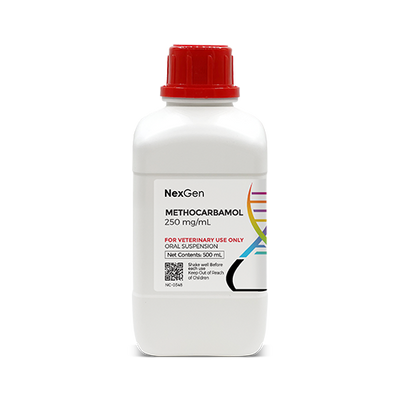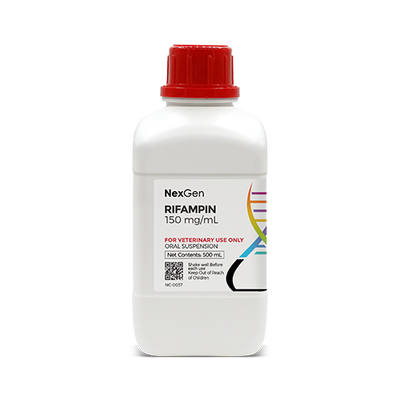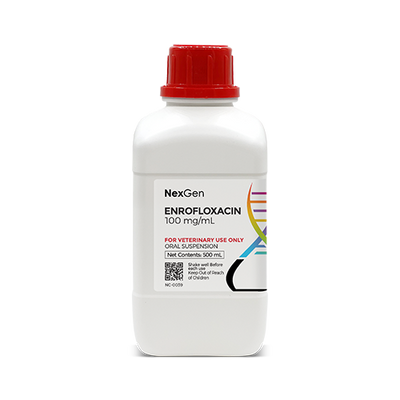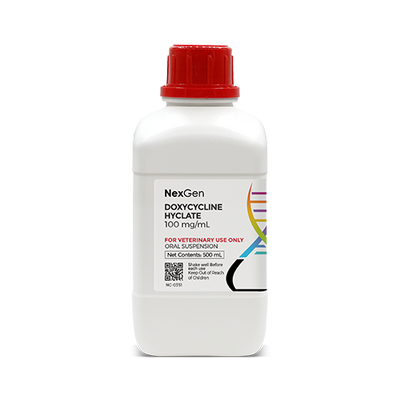
Griseofulvin 200 mg/mL, Oral Suspension, 500mL
Login for pricing
- Brand
- Mixlab
- Product Type:
- Suspension
- Size:
- 500ml
- Administration:
- Oral
Fungi are parasitic, spore-producing organisms that obtain their sustenance by absorbing food from their hosts. Many species of fungus exist in the environment, but only some of these can cause infections. The chief source of most fungal infections is soil, where they can be acquired via inhalation, ingestion, or through the skin.1
Certain fungal infections can cause disease in healthy horses, while others require a host that is immunocompromised by stressors such as poor nutrition, bacterial or viral infections in order to cause infection. Fungal infections may be localized or they may affect the entire body (systemic or generalized).
Some common fungal infections of horses include:
Ringworm
Ringworm is one of the most common fungal skin infections affecting horses. It is caused by a dermatophyte fungus (usually Microsporum or Trichophyton) and presents with skin lesions which usually start as small raised spots from which the hair is lost.2,3 The lesions can spread from these spots and become thickened and scabrous.1 Often, only one to three lesions may be seen, but if left untreated, the condition can become extensive. Ringworm is highly contagious and can spread to humans.
Where to buy Griseofulvin
Griseofulvin is available in the U.S. through several pharmaceutical manufacturers and through veterinary custom compounding companies. GRISEOFULVIN 200 MG/ML ORAL SUSPENSION (500ML) by NexGen Pharmaceuticals is indicated for the treatment of fungal infections in the horse.
Griseofulvin carries several potential drug interactions. Please consult your veterinarian prior to beginning any treatment regimen.
FOR RX ONLY: A valid prescription from a licensed veterinarian is required for dispensing this medication.
2Padalino, B. et. al. Rare Generalized Form of Fungal Dermatitis in a Horse: Case Report. Animals: an open access journal from MDPI vol. 10,5 871. 17 May. 2020.



















